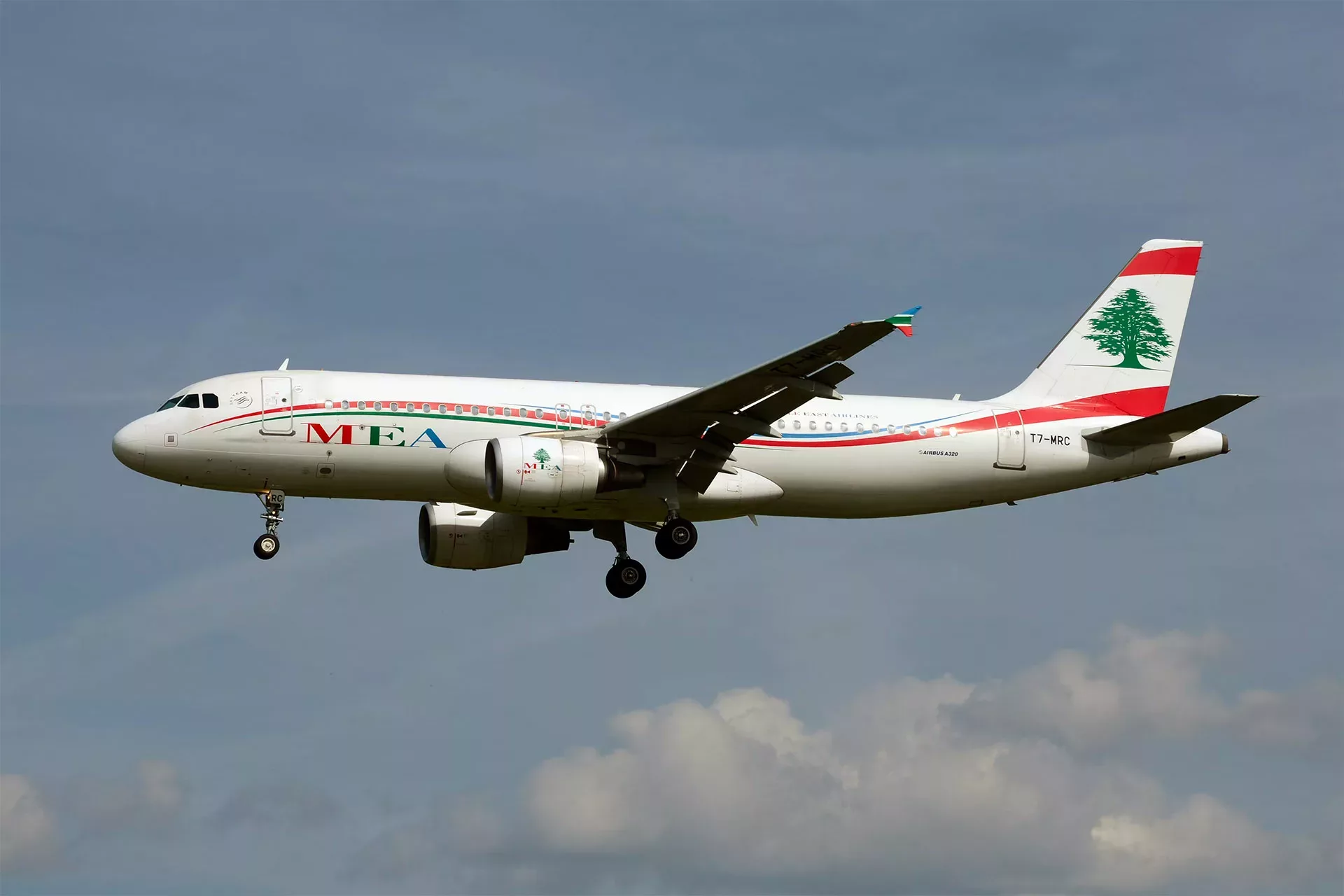When it comes to flying, delays and cancellations are as inevitable as jet lag after an ultra-long haul. However, your rights when it comes to delays and cancellations can vary dramatically based on where you’re flying and what country the airline is based in.
While U.S. passengers often find themselves in a lurch with little more than meal credits as compensation, European passengers enjoy significantly better protection thanks to EU261.
EU261 is a European Union regulation that has been the guardian angel of European air passengers for almost two decades. The magic of EU261 is that it can turn a frustrating flight disruption into a payday, with compensation amounts going up to 600 euros (about $630 USD) depending on the flight and delay duration. That’s in addition to rules about rerouting, meals, and hotel stays when there’s flight disruption.
Luckily for Americans, the benefits of EU261 aren’t exclusive to European travelers. Americans flying across the Atlantic can also tap into this powerful passenger protection tool. But according to some estimates, up to 90% of air passengers don’t file for compensation when they’re entitled to! It may feel like navigating a labyrinth to determine if you’re eligible for compensation, but it’s worth knowing some of the ins and outs of the policy to know when you’re eligible and what rights you have in the case of flight disruption.
That’s why we put together this guide to shed light on the complexities of EU261, empowering you to claim your rights and make your journey smoother, even when there are bumps in the air. So buckle up and get ready to dive into the world of EU261 – your indispensable companion for European air travel!
Or just bookmark this page to refer back to next time you suspect you might be due EU261 flight compensation 😉
In this post:
When EU261 Compensation Applies
Regulation (EC) No 261/2004, commonly known as EU261, is a key piece of legislation enacted by the European Parliament in 2004 to safeguard passenger rights when flights are delayed or canceled. But when does it apply?
In short, EU261 applies to all flights departing from a European airport regardless of what airline is operating the flight. This applies both to flights operating to destinations within Europe and to flights to non-EU destinations (such as the United States).
What about flights operating to Europe from outside the EU? Then it depends on the operating carrier. If your flight is operated by an EU carrier then your flight is covered by EU261 on flights to Europe. If you’re flying a non-EU carrier, it does not apply to flights with a European destination.
Got that? If not, here’s a handy chart explaining when flights are and aren’t covered under EU261:
| Flight itinerary | Flying a EU carrier | Flying a non-EU Carrier |
|---|---|---|
| Flying from the EU (or UK) to the EU (or UK) | The flight is covered by EU261. | The flight is covered by EU261. |
| Flying from the EU (or UK) to non-EU (or UK) | The flight is covered by EU261. | The flight is covered by EU261. |
| Flying outside of the EU (or UK) to the EU (or UK) | The flight is covered by EU261. | The flight is covered by EU261. |
| Flying outside of the EU (or UK) to non-EU (or UK) | The flight is not covered by EU261. | This flight is not covered by EU261. |
More Details On EU261’s Scope
At the heart of EU261 is the commitment to safeguard passengers against overbooking, cancellations, and long flight delays. The regulation mandates assistance and monetary compensation in these situations. The type and amount of aid hinge on the specific circumstances—cancellation or length of delay—and the distance traversed during the flight.
The EU summarizes eligibility for EU passenger rights protection as follows on europa.eu:
- If your flight is within the EU and is operated either by an EU or a non-EU airline
- If your flight arrives in the EU from outside the EU and is operated by an EU airline
- If your flight departs from the EU to a non-EU country operated by an EU or a non-EU airline
- If you have not already received benefits (compensation, re-routing, assistance from the airline) for flight-related problems for this journey under the relevant law of a non-EU country.
This even applied during the COVID-19 pandemic as European airlines put EU261 to a stern test as they sought waivers for certain provisions, citing the extraordinary circumstances induced by the global health crisis. Despite airlines’ protestations, the EU upheld the protections on May 18, 2020 in terms of requirements for lodging and full refunds for cancellations, however, requirements for cash compensation were temporarily suspended.
So if you’re planning a transatlantic or inter-European journey, understanding the scope of this regulation is important.
Consider this scenario: you’re planning a trip from Chicago to Frankfurt. If you’re flying on Lufthansa or another EU carrier, EU261 applies. If you’re flying United or a U.S. carrier, EU261 does not apply. However, EU261 would cover your return flight from Frankfurt regardless of what airline you choose. That’s because the regulation extends its reach to outbound flights from the EU, even when operated by non-EU carriers.
Let’s break it down:
- On flights to Europe: EU261 applies when your flight is operated by a European carrier and terminates in a European country.
- EU261 doesn’t apply when your flight to Europe is operated by a non-European carrier. In other words, flights to Europe on airlines like American Airlines, Delta, United, JetBlue, or Air Canada are not covered by EU261.
- On flights departing Europe: EU261 applies when your flight departs Europe regardless of what carrier your fly.
- EU261 applies on all flights departing Europe even if your flight is operated by a non-European carrier. In other words, flights from Europe on airlines like American Airlines, Delta, United, JetBlue, or Air Canada are covered by EU261.
What about a connection in Europe on a flight originating outside the EU to outside the EU? A ruling by an Austrian court in 2022 has curtailed the application of EU261 to flights with a European stopover en route to a non-EU destination.
Despite that, since its adoption on February 11, 2004, this regulation has become an important quiver in the arsenal for European travelers dealing with flight delays and cancelations by airlines across the European Economic Area. And the United Kingdom…
Brexit: EU261 and the United Kingdom
One wrinkle that may have crossed your mind as you read about EU261 is Brexit. With the United Kingdom having departed the European Union, does EU261 still apply on flights in the United Kingdom or is it now treated as a non-EU country?
Fear not. UK legislators have enshrined the regulation into law in 2020 as UK261, ensuring its continuity in the United Kingdom despite the UK’s departure from the EU.
So for purposes of this article, when we discuss your rights in Europe, we’re talking about the European Union and the United Kingdom.
Brexit? What Brexit.
EU261 Compensation for Flight Delays
For most passengers, EU261 is most significant for its provisions on ticket refunds and compensation for passengers in cases of flight delays and cancellations. It’s essential to understand these features if you’re flying to or in Europe.
EU261 set baseline rules for compensation in case of flight delays, cancellations, or denied boarding.
The amount of compensation for flight delays under EU261 depends on the distance of the flight and the length of the delay.
- Flights under 1,500 km (932 miles): 250€ (about $260 USD) with a minimum delay of two (2) hours.
- Flights between 1,500–3,500 km (932–2,175 miles) and any intra-EU flight over 1,500 km (932 miles): 400€ (about $420 USD) with a minimum delay of three (3) hours.
- Flights over 3,500 km (2,175 miles): 600€ (about $630 USD) with a minimum delay of four (4) hours.
In addition, if your departure is delayed to at least the day after your originally scheduled flight, you’re also entitled to complimentary hotel accommodations and transportation to and from the airport to the hotel.
It’s important to remember that these are just general guidelines and the specifics can vary depending on your exact situation.
EU261 Passenger Rights During Flight Cancellations
When an airline cancels a flight, EU261 stipulates that passengers are entitled to a full refund.
This rule was put to the test during the COVID-19 pandemic when many airlines wanted to play shenanigans and offer expiring flight credits instead of refunds. However, the EU upheld the refund requirement, much to the dismay of the airlines. With the pandemic behind us, all normal EU261 rights are back in effect.
EU261 Passenger Options During Flight Cancellations
What does the European Union consider a flight cancellation? Here’s their guide again from europa.eu:
- your original flight schedule is abandoned and you are transferred to another scheduled flight
- the aircraft took off but, was forced to return to the airport of departure and you were transferred to another flight
- your flight arrives at an airport which is not the final destination indicated on your ticket, unless:
- You accepted re-routing (under comparable transport conditions at the earliest opportunity) to the airport of your original final destination or to any other destination agreed by you. In this case it is considered as a delay and not a cancellation.
- The airport of arrival and the airport of the original final destination serve the same town, city or region. In this case it is considered as a delay and not a cancellation.
In the event of a flight cancellation, you have a one-off choice between three choices (which do not affect your right to compensation):
- A full refund of your ticket and, if the cancellation involves a connecting flight, a return flight to the airport of departure at the first opportunity
- Rerouting to your final destination as soon as possible (including on other carriers)
- Rebooking on a later date of your preference under comparable transport conditions, subject to seat availability
Once you’ve made a selection between a refund, rerouting, or rebooking, you no longer have the right to switch to one of the other options. Your right to compensation, if applicable, however, remains intact.
The following conditions apply to flight cancellation rights under EU261
- If the airline does not comply with its obligation to offer re-routing or return under comparable transport conditions at the earliest opportunity, it has to reimburse your flight costs.
- If the airline does not offer you the choice between reimbursement and re-routing but decides unilaterally to reimburse your original ticket, you are entitled to an additional reimbursement of the price difference with the new ticket (under comparable transport conditions).
- If you booked an outbound and a return flight separately with different airlines and the outbound flight is canceled, reimbursement is only due for the canceled flight.
EU261 Flight Cancellation Compensation Requirements
In addition to offering you the choices of refund, rerouting, or rebooking, airlines may owe you cash compensation if your flight is canceled.
The amount of the compensation depends on the distance of the canceled flight:
- Flights under 1,500 km (932 miles): 250€ (about $260 USD)
- Flights between 1,500–3,500 km (932–2,175 miles) and any intra-EU flight over 1,500 km (932 miles): 400€ (about $420 USD)
- Flights over 3,500 km (2,175 miles): 600€ (about $630 USD)
The following conditions apply to EU261 flight cancellation compensation:
You’re not entitled to compensation:
- if you are informed more than 14 days in advance
- if you are informed between 2 weeks and 7 days before the scheduled departure and you are offered re-routing which would allow you:
- to depart no more than 2 hours before the original scheduled time of departure and
- to reach your final destination less than 4 hours after the original scheduled time of arrival
- if you are informed less than 7 days before the scheduled departure and are offered re-routing which would allow you:
- to depart no more than 1 hour before the original scheduled time of departure and
- to reach your final destination less than 2 hours after the original scheduled time of arrival.
If the airline has offered you re-routing and you reach your final destination with a delay of 2, 3 or 4 hours the compensation may be reduced by 50%.
The Future of EU261
Despite the numerous benefits of EU261 for passengers, it’s not a perfect regulation. Some parts of it are open to interpretation, and it has been tested significantly, especially during the COVID-19 pandemic.
The European Commission is well aware of these issues and has been working on a revision of the regulation for several years now. The aim is to clarify certain aspects, make the rules more passenger-friendly, and adapt them to the new realities of air travel.
In the meantime, the existing EU261 regulation continues to provide a robust framework for passenger rights in the EU. It’s a useful tool that can help you get compensation or assistance in case of flight disruptions. If you’re planning a trip to or from Europe or on a European airline, it’s worth familiarizing yourself with this regulation and knowing your rights.
Bottom Line
Navigating the world of air travel can sometimes feel like a daunting task, but with the EU261 regulation on your side, you’re not alone. This comprehensive regulation is there to protect you and ensure you’re treated fairly by airlines.
Remember, knowledge is power. The more you know about your rights as a passenger, the better you can advocate for yourself if things don’t go as planned. So, take some time to read through EU261 and make sure you understand it. It could make a significant difference to your travel experience.





0 Comments